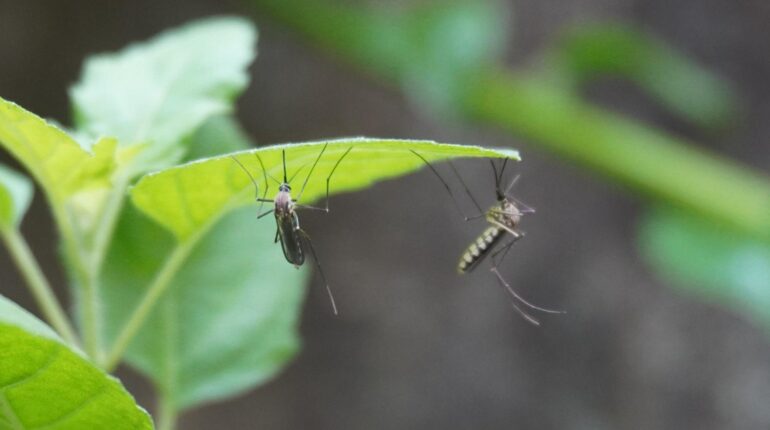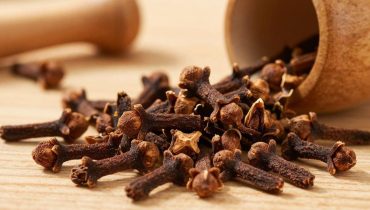📌 This common kitchen spice actually repels ants and mosquitoes better than chemical sprays

Posted 24 July 2025 by: Admin
Image d’illustration © TopTenPlay EN
Scientific Evidence Behind Ginger’s Pest-Repelling Properties
While many natural pest control methods rely on folklore rather than facts, ginger’s effectiveness against ants and mosquitoes stands on solid scientific ground. Research reveals that ginger (Zingiber officinale) possesses unique properties that make it simultaneously beneficial to humans and plants while proving toxic to insects—a perfect combination for natural pest management.
The secret lies in ginger’s active compounds, which directly attack an insect’s respiratory and nervous systems. These biochemical mechanisms don’t simply deter pests; they actively disrupt their biological functions. Studies demonstrate that ginger extract can shrink insect larvae, effectively diminishing pest populations at their source rather than merely displacing adult insects to other areas.
Ginger’s pest-fighting prowess extends far beyond ants and mosquitoes. Scientific testing confirms its effectiveness against cockroaches, ticks, leaf-cutting wasps, and armyworms—making it a versatile natural insecticide for multiple garden threats. This broad-spectrum effectiveness stems from ginger’s fundamental toxicity to insect biology, which targets common vulnerabilities across different pest species.
What sets ginger apart from commercial pesticides is its selective toxicity. While devastating to insects, ginger remains completely safe for humans, pets, and beneficial wildlife. This remarkable characteristic addresses growing concerns about pesticide contamination in water supplies and agricultural soils, offering gardeners a scientifically-backed alternative that protects both their plants and the broader ecosystem.
However, understanding the science behind ginger’s pest-repelling properties reveals a crucial distinction that many gardeners overlook.
Image d’illustration © TopTenPlay EN
The Concentration Factor: Why Growing Ginger Isn’t Enough
This crucial distinction centers on concentration versus cultivation. Despite ginger’s proven scientific effectiveness against pests, simply planting ginger in your garden or sprinkling ground ginger powder on soil will not provide adequate protection for nearby plants. The research specifically validates ginger extract, essential oil, and ginger water spray—not the passive presence of growing ginger plants.
While ginger plants themselves are naturally pest-resistant, making them an excellent low-maintenance garden choice, their proximity doesn’t extend this protection to surrounding vegetation. The key lies in ginger’s aromatic compounds, which must reach sufficient concentration levels to trigger the toxic responses in insect respiratory and nervous systems identified in scientific studies.
Ginger’s potent smell serves as the primary delivery mechanism for its pest-repelling properties, but this aroma reaches maximum intensity only when concentrated through extraction processes. Fresh ginger root contains these active compounds in diluted form, while essential oils concentrate them to levels that can effectively disrupt insect biology.
This concentration requirement explains why many gardeners experience disappointing results when relying solely on companion planting with ginger or applying ground ginger directly to garden beds. The aromatic compounds remain too dispersed to achieve the toxic thresholds necessary for pest control, leaving plants vulnerable despite the presence of ginger nearby.
Understanding this concentration factor reveals why preparation method determines success in natural ginger-based pest control, pointing toward specific techniques that maximize the plant’s scientifically-proven capabilities.
Image d’illustration © TopTenPlay EN
Practical Application Methods For Maximum Effectiveness
These scientifically-backed preparation techniques transform ordinary ginger into a potent natural pesticide. The most effective method utilizes concentrated ginger essential oil, such as EVOKE OCCU Pure Ginger Oil ($.49 for 4 fluid ounces), which delivers the highest concentration of active compounds identified in research studies.
For optimal results, combine 10 drops of ginger essential oil with 3 ounces of water in a clean spray bottle—the JohnBee adjustable spray bottle provides reliable application control. This precise ratio ensures sufficient concentration levels to trigger the respiratory and nervous system disruption that makes ginger toxic to ants, mosquitoes, and other target pests.
Application requires strategic targeting: spray directly onto plant leaves for ant protection, or use around outdoor seating areas for mosquito control. However, avoid spraying fabrics, as ginger oil can leave permanent stains on clothing and furniture.
Homemade ginger water offers an economical alternative using kitchen scraps destined for compost. Mince or crush raw ginger roots, then steep in warm water for exactly 24 hours—this duration allows optimal extraction of aromatic compounds. Strain out solid pieces before transferring to spray bottles for immediate use.
This DIY method proves particularly valuable for large-scale garden applications, where commercial essential oil costs become prohibitive. The steeping process concentrates enough active compounds to achieve pest-repelling effectiveness while utilizing otherwise discarded ginger scraps.
Both methods provide indoor and outdoor versatility, delivering the concentrated aromatic compounds that research confirms as essential for disrupting insect biology.
Image d’illustration © TopTenPlay EN
Safety Benefits And Additional Garden Advantages
Beyond effective pest control, these ginger applications deliver remarkable safety advantages that commercial pesticides cannot match. While ginger proves incredibly toxic to insects, it remains completely harmless to household pets—a critical distinction for families concerned about chemical exposure risks.
Ginger stands among the few essential oils considered safe for dogs, and raw ginger poses no consumption dangers to either dogs or cats. This safety profile eliminates the anxiety associated with traditional pesticide use around beloved pets, allowing confident application throughout indoor and outdoor spaces.
The environmental benefits extend far beyond immediate pest control. Commercial pesticides contribute to water supply contamination, agricultural soil degradation, and declining populations of beneficial pollinators like birds and bees. Research consistently demonstrates these chemicals’ harmful effects on ecosystem balance and human health.
Ginger water provides dual functionality as both pesticide and natural fertilizer, revolutionizing garden health through nutrient delivery while eliminating unwanted insects. This combination approach reduces dependency on multiple chemical products, streamlining garden maintenance through single-application effectiveness.
The sustainability factor proves equally compelling. Utilizing kitchen scraps—ginger roots typically destined for compost—transforms waste into valuable pest control resources. This zero-waste approach aligns with environmentally conscious gardening practices while reducing household expenses.
These multifaceted benefits position ginger-based pest control as a holistic solution addressing safety, environmental, and economic concerns simultaneously. The convergence of scientific effectiveness with practical advantages establishes ginger as a superior alternative to conventional chemical approaches.




















